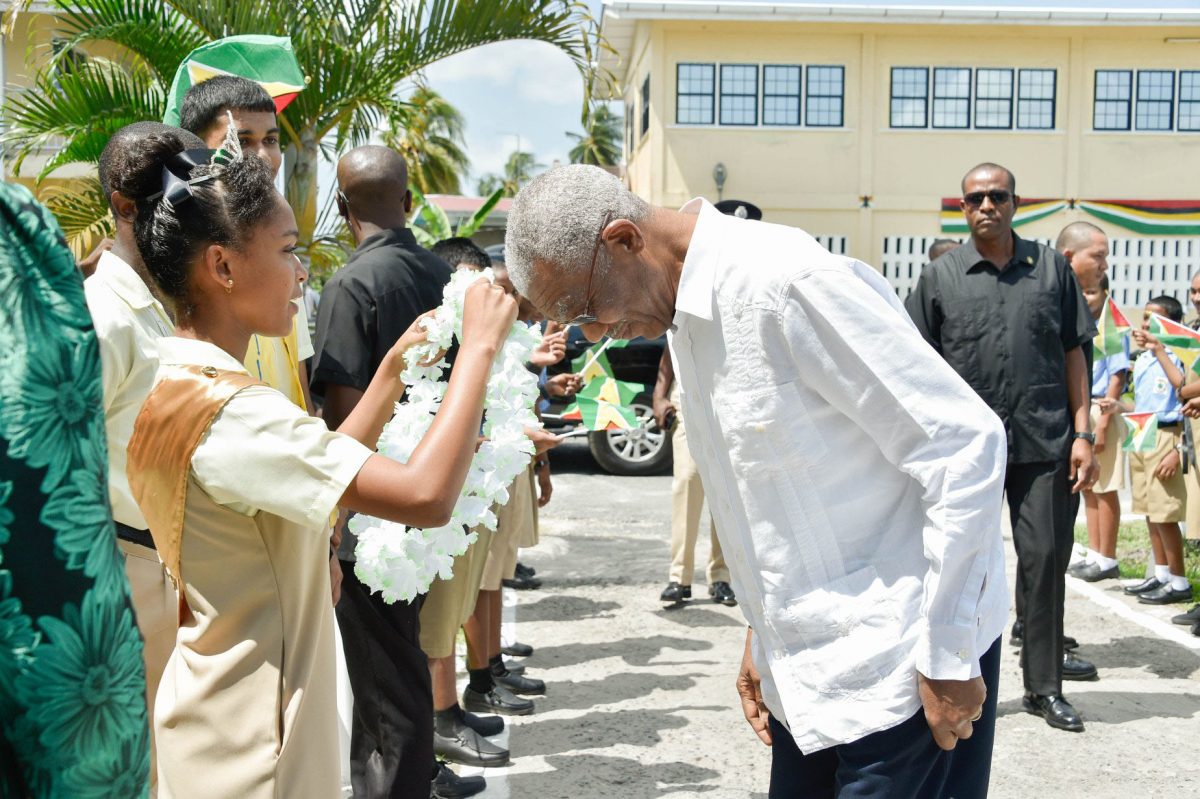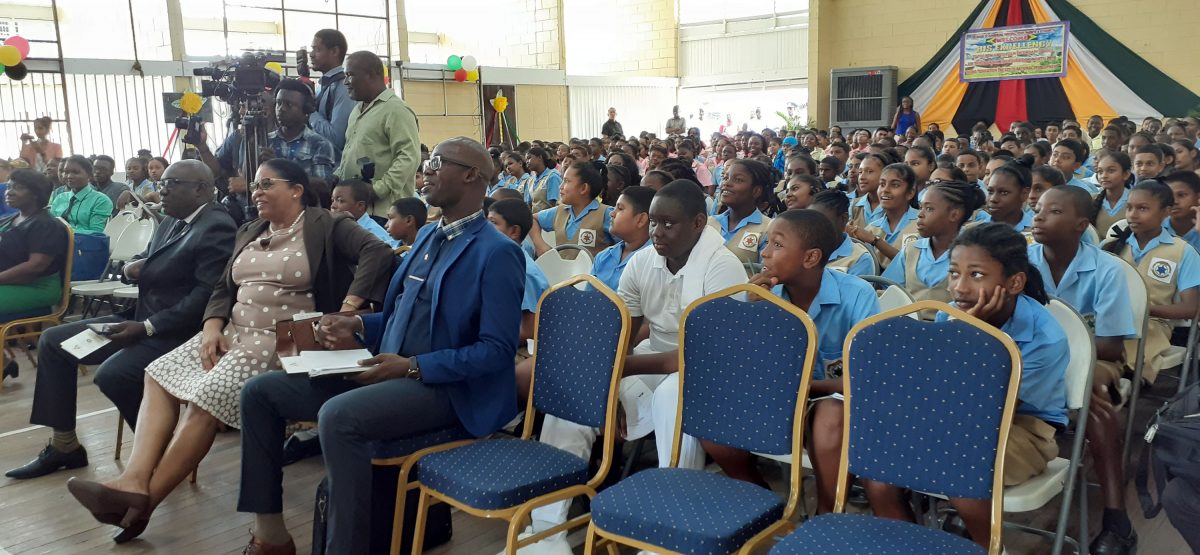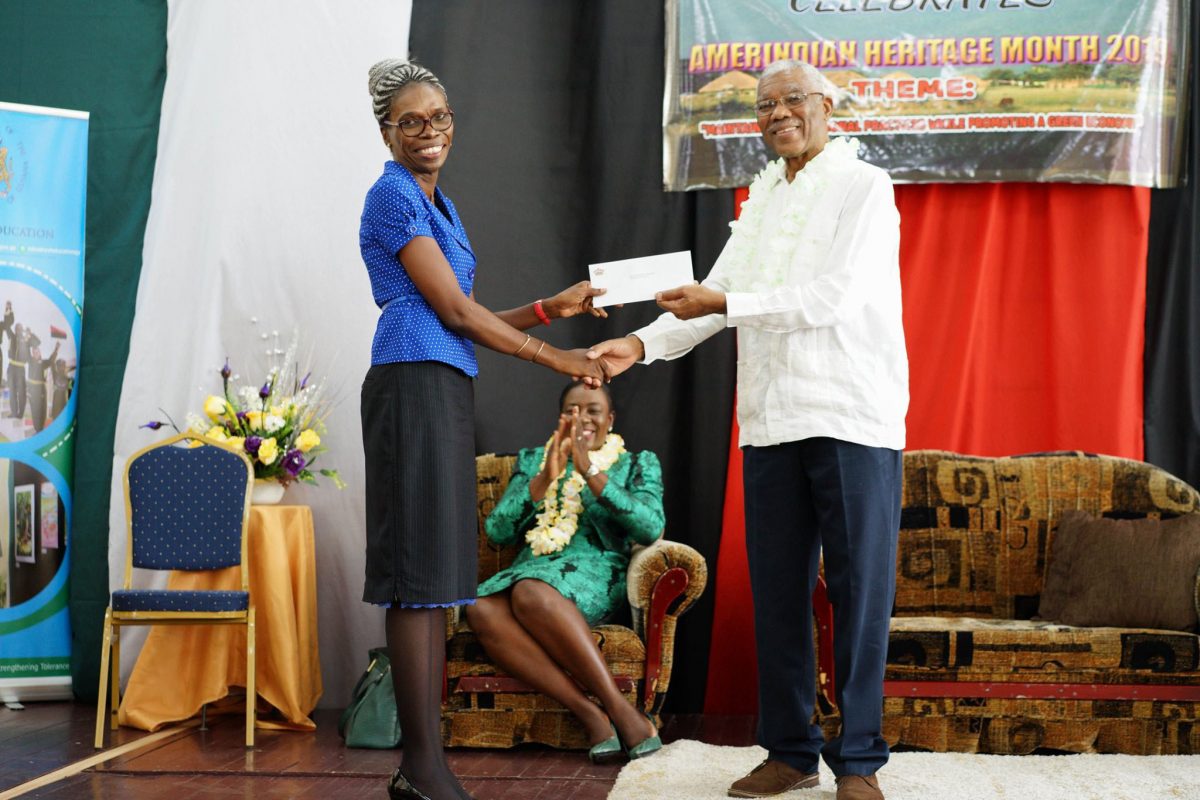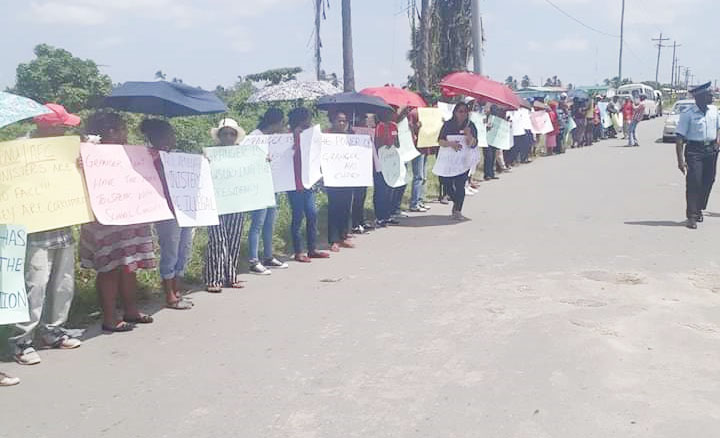Visiting the New Amsterdam Multilateral School (NAMS) yesterday, President David Granger said that over the next decade, efforts will be made to have a school in every village.
He had observed that of the 135 villages in Region Six, only 53 had primary schools which caters for about 11,000 students. “I want to see the day when every village has a school,” he said, adding that efforts will be made during the next decade to achieve this.
The president during a visit to the school yesterday also handed over a $1 million cheque to the NAMS as part of the National Endowment for Science and Technology (NEST) programme to boost the teaching of Science, Technology, Engineering and Mathematics (STEM). The school had topped the region with a 93 per cent pass rate at the recent Caribbean Secon-dary Education Certificate (CSEC) examinations.
Granger also took his message of free education to the students. The president had previously dubbed the next ten years – 2020-2029 – a decade of development and has said that oil revenues will be used to fund free education from Nursery to Tertiary levels for all Guyanese.
“That is not an intention on my part. It is an entitlement that is there for you under the Constitution,” the president emphasised. He had recalled that education, from nursery to university, was provided free of cost for a period beginning in 1976 and said that this will be reintroduced next year.
“Free education is an entitlement…Free university education will be restored during the decade of development. No Guyanese child will have to pay for education at the University of Guyana,” he was quoted as saying in a report from the Ministry of the Presidency. “The decade of development will ensure that every child is enrolled in school; every child attends school regularly, every child graduates from school and every child is supported in his or her education,” the president said.
Further, he said, STEM education will be promoted over the next decade in order to better equip students for the knowledge-based societies of the future. In this light, he added, there must be a corps of teachers committed to providing quality education to children.
Emphasising the importance of regional education, the president said it will generate the human skills needed to revive and drive village industries especially micro, small and medium-sized enterprises which create jobs and provide household incomes.
“Regional education is an investment in our regions’ future. It can produce a corps of scientists: agronomists, architects, biologists, botanists, che-mists, doctors, epidemiologists, engineers, environmentalists, geneticists, geologists, hydrologists, physicists, software developers and zoologists which are needed to ensure economically strong regions,” Granger was quoted as saying. He highlighted that government has spent more than $170 billion on education since taking office in 2015.
Moreover, the report said, public education is being improved through an overarching educational policy of Every Child in School. This policy is aimed at producing ‘A’ students- ‘A’ for access, ‘A’ for attendance and ‘A’ for attainment. The president said that every child must have access to education including the visually and physically challenged. The regions, Granger said, must ensure that every child attends school and stays in school.
He also highlighted the Public Education Transport Service (PETS) programme – also known as the three B’s (Bus, Boats and Bicycles) – which was launched four years ago. To date, 29 buses, 10 boats and more than 4,000 bicycles have been distributed through the programme. Region Six (East Berbice-Corentyne) has benefitted from five buses which provide free transportation to children.
“I long for the day when every child passes the National Grade Six Assessment; no failures. Every child who enters school must pass…I am interested in equality,” Granger said. “Children are being supported to improve their performance. Internet access is being expanded to schools across all our regions. Science and Information Commun-ications Technology laboratories are being improved, including through initiatives such as the NEST,” he added.
In noting the school’s performance at the CSEC exams, the president hailed the NAMS as one of Region Six’s premier schools. He said that he looks forward to the transformation in regional education which will result in schools of excellence across the country.
“This is not a dream; this is a plan,” he asserted, adding that efforts are being made to build a better and brighter future by establishing an education system where talent would be allowed to emerge, effort encouraged and excellence emulated.
Acknowledging that transformation takes time, Granger said that public education is on the right path and he is confident that the investment government is making “will enable us to bequeath to future generations a richer legacy than we inherited.”
Meanwhile, the school’s top two performers at the CSEC exams for the past two years were awarded a voucher, certificate and a laptop each.
Some members of the PPP protested the president’s visit.












